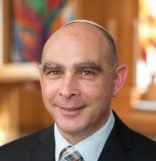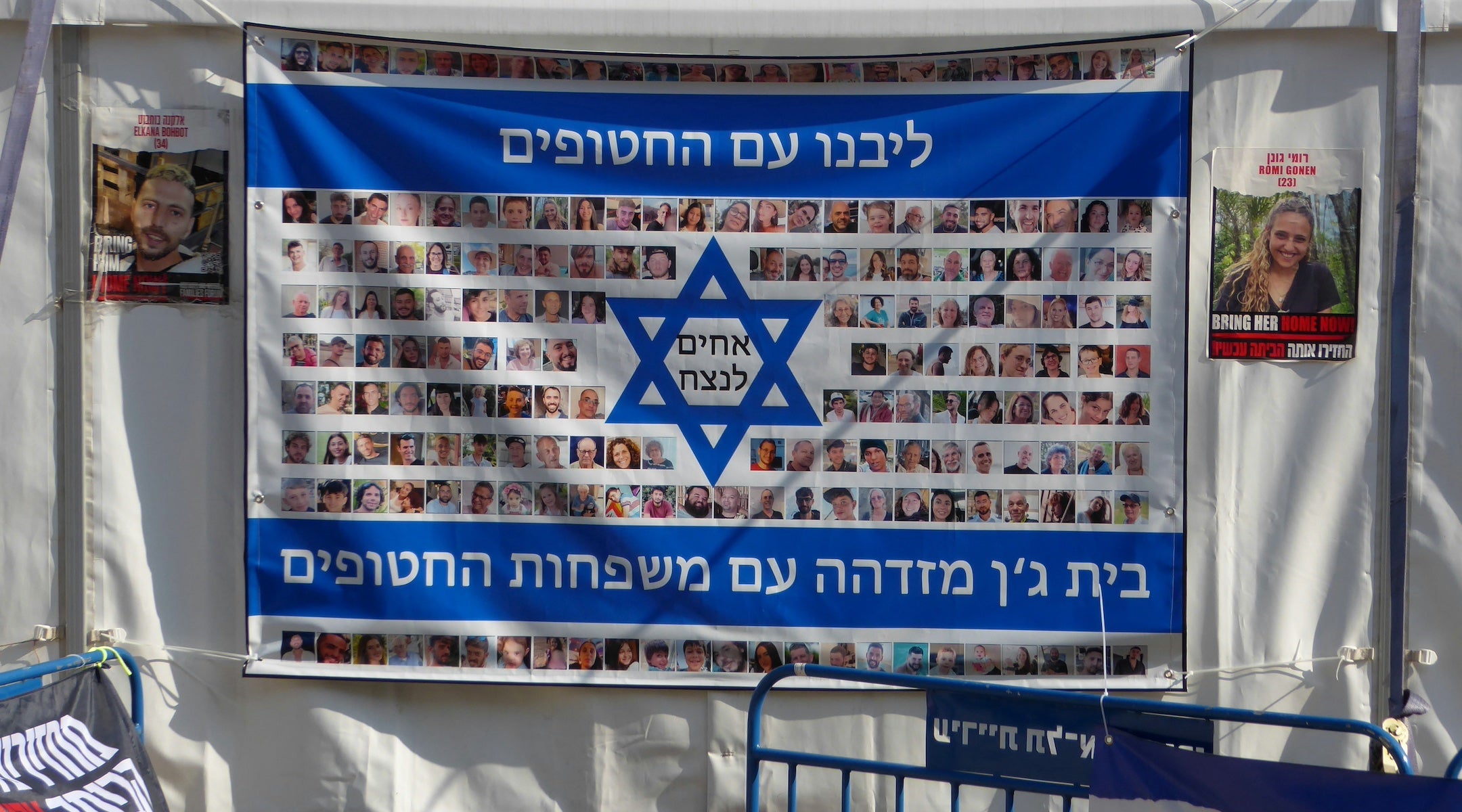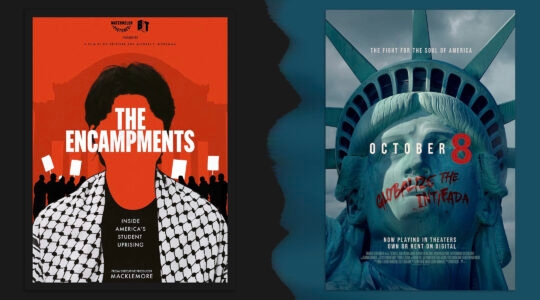(JTA) — “Shalom aleichem [BOOM], malachei hasharet [bang], malachei elyon [thump, thump] …”
This is how my Friday night dinner began, this last Shabbat on Kibbutz Alumim. I was spending Shabbat with my mother, who, a few years ago, moved to where my sister has been living for almost 40 years. From the moment I arrived until the moment I left, there was no let-up in the incessant sounds of war — thank God, all outgoing from Israel.
Back in October, Kibbutz Alumim was attacked on that black Shabbat. Thanks to its security team, soldiers and other defense forces, my mother, sister, brother-in-law and other kibbutz members and visitors were saved. However, 16 foreign workers, one IDF officer, two volunteer reservists and an Israeli civilian, were killed in the battles, and a further eight foreign workers were taken hostage to Gaza. The following day, my family was evacuated. After spending six months in Raanana, they returned home, just before Purim in March.
On Passover, as our extended family gathered for the seder, in the safety of Netanya, there was no doubt that we were most fortunate to celebrate with no loss of life and with no family member held hostage in Gaza. Most fortunately, none of the rest of us were visiting Alumim that cursed Simchat Torah. We all knew the outcome could have been horrendously different.
On Friday night, as I sat eating with my mother, and with the jolting “music” of war accompanying us, I couldn’t help but ask: “Why?”
Why is the IDF attacking again in northern Gaza, an area supposedly cleansed of terrorists a few months ago? Why is it acceptable for my mother to live in the middle of a battlefield? Why does a corrupt government keep sending our sons and daughters, brothers and sisters, to be killed or maimed in Gaza, when it appears that there is no endgame in sight?
Why can we not reach a deal — however “bad” — with the terrorists, that will undoubtedly be good for the hostages and their families, and for the people of Israel? Why are we, Israel, unable to explain our actions to critics abroad?
And perhaps above all I find myself asking, Why do we think that almost 60 years of occupying another people will not have dire consequences?
Tuesday is Yom Ha’atzmaut, Israel’s Independence Day, and I will not be celebrating, not in the streets and not in my heart. Even before Oct. 7, I was asking what is festive about a government that sows social unrest in order to legislate the undemocratization of Israel. Now I ask the same government, Do we wish to live in a perpetual state of war with our neighbors, or do we want to leave no stone unturned in the search for a peaceful existence in our land? Neither we nor the Palestinians are going anywhere. If they do not want to sit down and discuss our joint future, then we, as the stronger side, must take the initiative.
As a Jew who has been taught that all humans are created in God’s image, it hurts me to see people suffer. Yet I believe that there is a difference between the suffering that is caused by others. and the suffering that I directly inflict upon people. My understanding of Judaism is that we have every right — indeed, a duty — to defend ourselves, but we have no right to occupy another people, even in what may be considered our God-given homeland.
How can we celebrate independence when we are not prepared to grant it to others, let alone our own people? Today — and every day since this government decided to smash my Zionist dream to smithereens — my heart bleeds and I cry: for all those who have lost those most dear to them, for those held hostage in Gaza, for their families waiting at home, and for the families sending their loved ones to war.
It is not enough to just ask questions. I have learned that if you want change to happen, you must be the catalyst. We can wait for an eternity for the Palestinians to make a change, or we can decide what our future might look like.
The way forward is not through stifling dissent by calls for a false unity which is, in fact, simply a demand for conformity. A bright future is one in which we can ensure that our children live in peace, within secure boundaries, with opportunities to broaden their horizons.
So rather than celebrating, I am resolving to fight for an Israel that lives up to its Declaration of Independence, to, as that vaunted document states, “foster the development of the country for the benefit of all its inhabitants.”
It goes on, in a pledge that moves me anew this dark Independence Day: Israel “will be based on freedom, justice and peace as envisaged by the prophets of Israel; it will ensure complete equality of social and political rights to all its inhabitants irrespective of religion, race or sex; it will guarantee freedom of religion, conscience, language, education and culture; it will safeguard the Holy Places of all religions; and it will be faithful to the principles of the Charter of the United Nations.”
JTA has documented Jewish history in real-time for over a century. Keep our journalism strong by joining us in supporting independent, award-winning reporting.







